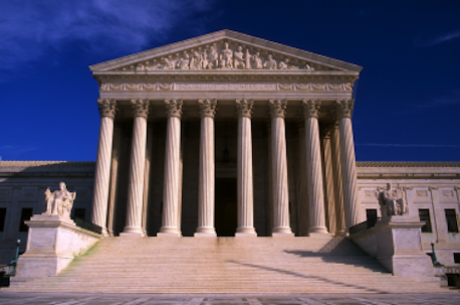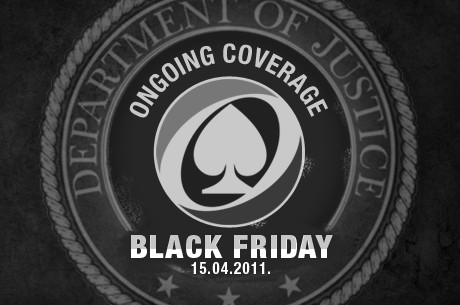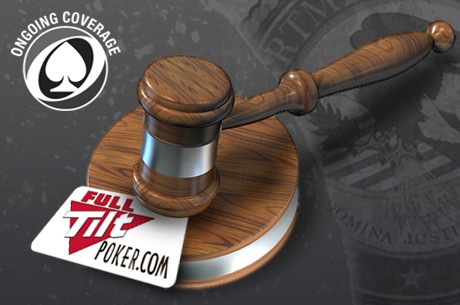Full Tilt Poker Lawyer Anne Madonia Discusses Transfer of FTP Assets to PokerStars

Full Tilt Poker has completed the transfer of its assets to PokerStars today, which happened immediately after the U.S. government received a $225 million payment per the settlement agreement with the U.S. Department of Justice.
Now that the transfer of assets is complete, PokerStars will make available all outstanding balances owing to all non-U.S. customers of Full Tilt Poker �� an amount totaling $184 million �� within 90 days, and U.S. players, who are owed approximately $150 million, will be refunded by the DOJ.
The asset transfer was facilitated by attorneys Barry Boss and Anne Madonia of Cozen O��Connor, a nationally recognized law firm that represented FTP throughout negotiations and closing.
��We have worked incredibly hard over the past 15 months to reach an agreement that would achieve Full Tilt Poker��s primary objective: enabling all of its customers to be compensated,�� Boss said last week after the deal was announced. ��I am gratified that we were finally able to achieve this objective.��
Meanwhile, Madonia headed the corporate team on behalf of FTP throughout negotiations. PokerNews had the opportunity to talk with Madonia about the transfer of FTP��s assets to PokerStars.
PokerStars still needs to forfeit $322 million to the U.S. government over the next three years. Is there a timetable as to when this money will be paid? Will it be in one installment or several?
It��s actually public information, it��s in the PokerStars stipulation. There is a timetable. I believe there is a $125 million payment that��s due within a year, and then I think there��s a $100 million payment due within two years, and then I think the balance is due in three years. It��s a three-year payout period.
Can you describe for us what the negotiation process was like? How long was the negotiation process?
As far as how long it lasted, it started toward the end of April and ended at the end of July when we signed and filed the stipulation with the court. It took three months of negotiating with three parities, basically a three-party transaction �� the United States government, PokerStars and Full Tilt.

As far as the magnitude of negotiations, you can imagine negotiating with the U.S. government and negotiating with one of the largest online poker companies in the world, being PokerStars with major international law firms representing them from Israel to Ireland, New York and Washington D.C., and we were representing a client who had very little to no leverage in negotiations. We fought very hard and our clients were determined to get the best outcome for the various stakeholders involved in the Full Tilt operation.
It would seem that FTP wasn��t really in a position to set terms so to speak? Was this the case?
We never acquiesced to that fact in negotiations, you really have no leverage if you say you have no leverage. However, the Full Tilt companies had various avenues to consider, including bankruptcy, contesting and defending the civil forfeiture complaint in and of itself, and so that��s where the leverage was, that they still had the opportunity to pursue other avenues and not just acquiesce into a forfeiture.
Again, when you have to delicately balance the many stakeholders, that��s something they took into consideration. Bankruptcy might not result in the players getting paid, it might leave all of their employees without jobs, it might give vendors much more difficulty collecting what��s due to them, so that��s what the leverage for Full Tilt, they did have other avenues to pursue, but this one really made the most sense for all the parties involved.
What were some of the points crucial to negotiations? For instance, was FTP��s not being deemed guilty of ��any wrongdoing, culpability, liability, or guilt�� essential to the deal��s successful completion?
Honestly, not really, that wasn��t a crucial point for our clients. The crucial point was to rest assured that the players were going to be compensated. That was a crucial point that we fought for to the end. As far as admitting the wrongdoing, etc., that��s in some sense boilerplate language when entering into a forfeiture agreement. You don��t want to forfeit all your assets and then still have a third party, meaning the government, who can come back and still come after you. We wouldn��t be good advocates for our clients if we didn��t have that type of language in a settlement agreement.
Speaking of players�� funds, are you privy to any details regarding the repayment of U.S. players?
We really are not privy to a lot of that information. On the one hand we��re not even sure it��s all been finalized from the government��s perspective, we��re really just not privy. They may, for all we know, have a game plan ready to roll out, or they may not. This is not your typical forfeiture and remission process. They��re not sharing that information with us, we don��t really have a lot of details other than what��s already publicly available.
Were board members like Ray Bitar, Chris Ferguson and Howard Lederer consulted during the negotiation process?
They are directors of Tiltware, so obviously they are involved. Howard and Ray play a different role than Chris Ferguson, because they��re managers of Tiltware in a hierarchy within the very complicated corporate structure, but ultimately the transaction was submitted to Chris, Howard and Ray for approval. Howard as a manager of Tiltware was actively involved in the negotiations. Ray as the CEO in Dublin running Pocket Kings was actively involved throughout the process as well. To be clear, we more than just consulted with Ray and Howard in the negotiation process, they were part of the process to bring this deal to fruition.
Is it safe to say that all three of them approved of the final settlement?
Yes.
Was the return of either Ray Bitar and/or Nelson Burtnick to the United States part of any negotiations?
I��m not privy to any information with respect to their criminal matters, but as far as the civil side and the civil forfeiture complaint, that really didn��t play a part in the timing of the transaction, it didn��t give us any leverage or no leverage . . . It didn��t impact the settlement discussion with PokerStars and the DOJ.
Now that FTP��s assets have been transferred to PokerStars, does this close the door for Cozen O��Connor��s representation of FTP?
With any transaction there is always a transition period from seller to buyer and tying up any lose ends, assisting the new buyer/operator with any new business that��s been purchased . . . It��s pretty standard that if they had any questions or issues that we would help them through that, so it��s not 100 percent over, I would imagine it could take a week or two to help transition, maybe longer. So it��s not over, not 100 percent over.
Is there anything else you��d like to add?
I think one of the important aspects of this was that there wasn��t a lot of information available, but there were confidentiality obligations between various parties and it was a very complicated transaction with assets sprawled over multiple continents, multiple countries, stakeholders in different parts of the world. I can tell you that management was doing everything it could to delicately balance all of the interest of all of the stakeholders to get the best outcome possible.
Get all the latest PokerNews updates on your social media outlets. Follow us on Twitter and like us on Facebook now!








